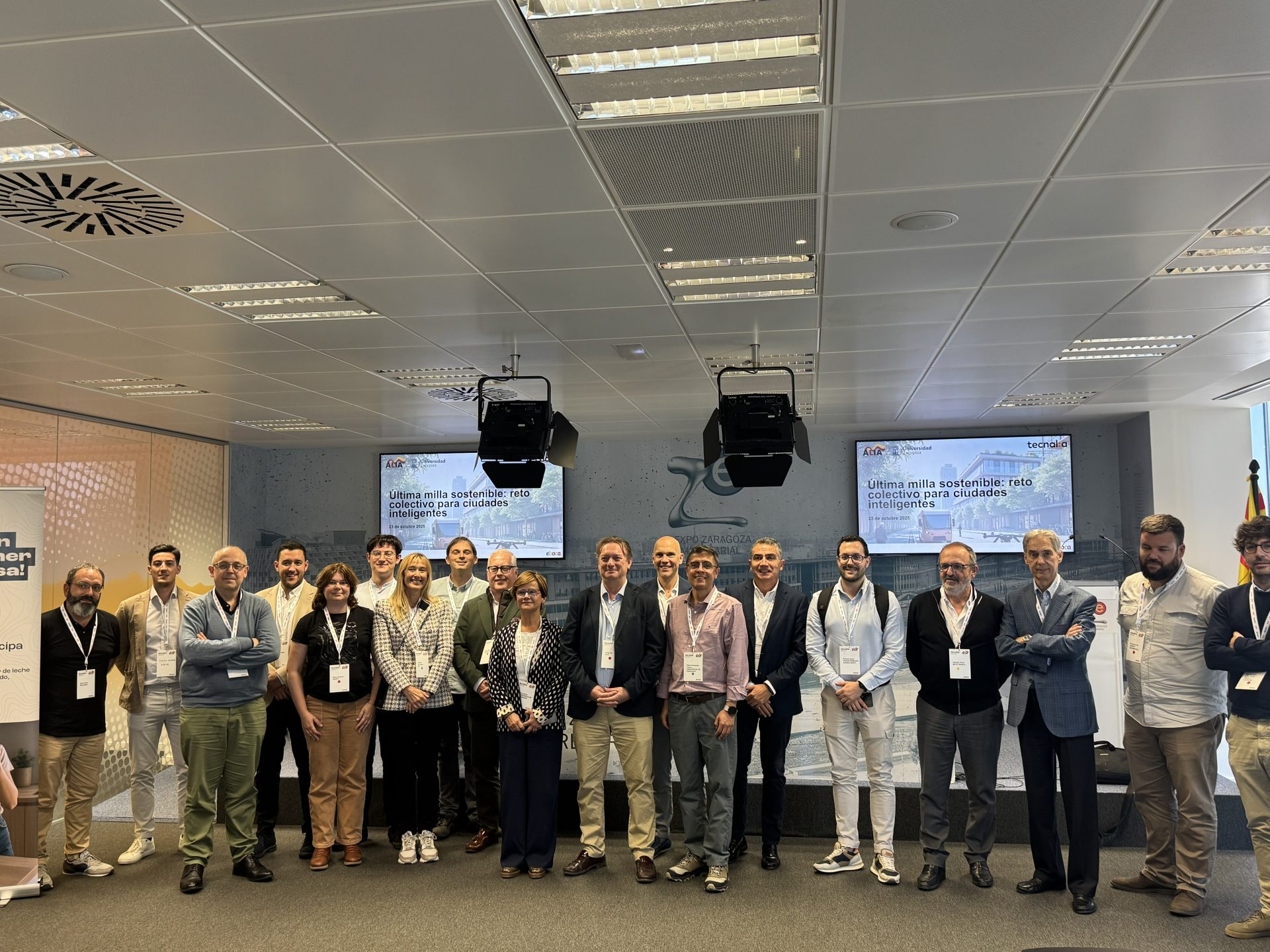“Zaragoza hosts a key meeting to rethink urban logistics and move towards more sustainable cities”
The “last mile” as a driver of change towards more sustainable, connected cities
Urban logistics is in the midst of a transformation. The growing demand for fast deliveries, pressure to reduce emissions and the need to integrate goods distribution into complex urban environments are redefining the concept of the last mile. This final part of the logistics chain, which represents up to 40% of the total cost and 25% of transport emissions in Spain, has become a key element in moving towards more efficient, cleaner and more liveable cities.
In this context, technological innovation, multi-sectoral collaboration and sustainability are vital pillars for tackling the challenges posed by urban goods distribution: congestion, traceability, digitalisation, automation and adaptation to low-emission zones.
Zaragoza as a meeting point for rethinking urban logistics
With this vision in mind, together with ALIA-Logistics Cluster of Aragon,, we brought together key players from the logistics, technology and academic sectors in Zaragoza to tackle the challenges of urban goods distribution, with a special focus on the last mile. The objective: to share experiences, present innovative solutions and co-create proposals to drive a more sustainable, efficient and connected last mile.
Success stories and innovative solutions
During the meeting, success stories were presented such as that of Novaltia, which shared its commitment to safer, more sustainable pharmaceutical logistics, and Eboca, which showed how digitalisation and smart vending can improve the user experience and operational efficiency.
- One of the highlights was the presentation of the SMART BAYS initiative, promoted by UNIZAR, ALIA and TECNALIA, which proposes flexible, connected management of urban loading and unloading areas.
- The initiative is in line with the European targets for climate neutral cities by 2030, and addresses issues such as the shortage of adequate spaces, the fragmentation of demand and the lack of interoperability between logistics systems.
Co-creation to transform the last mile
The event culminated with a co-creation workshop, where participants devised solutions to address current and future last mile challenges: congestion, emissions, traceability, digitalisation, automation and robotics.
This collaborative space provided an opportunity to come up with ideas with the potential to become transformative initiatives.
TECNALIA continues to promote solutions that will transform our cities into more efficient, resilient and sustainable logistics models. Transforming urban logistics is a shared challenge. And this meeting was another step towards real-world, sustainable, collaborative solutions.

